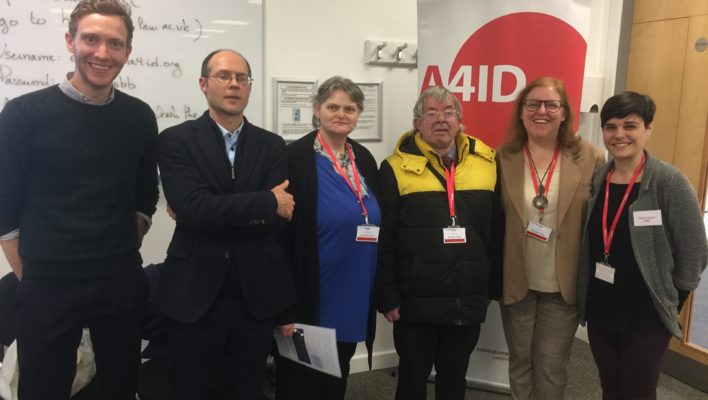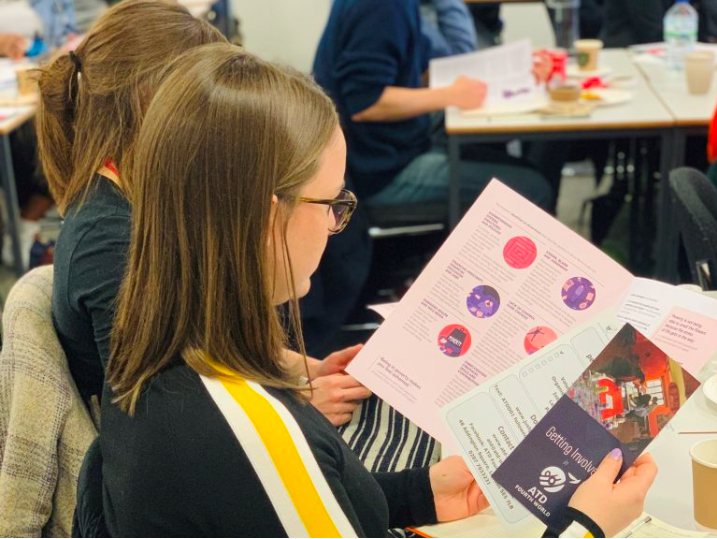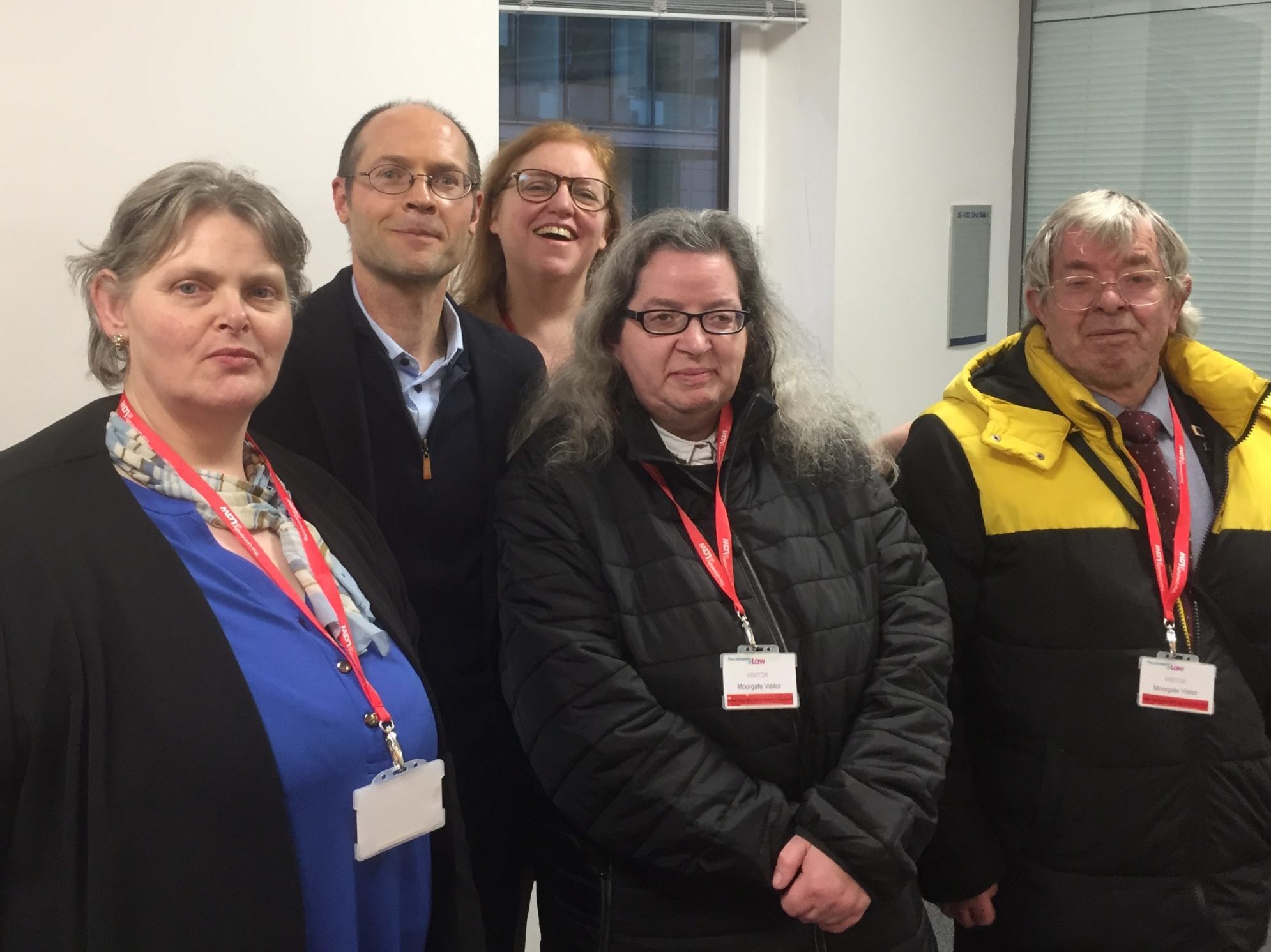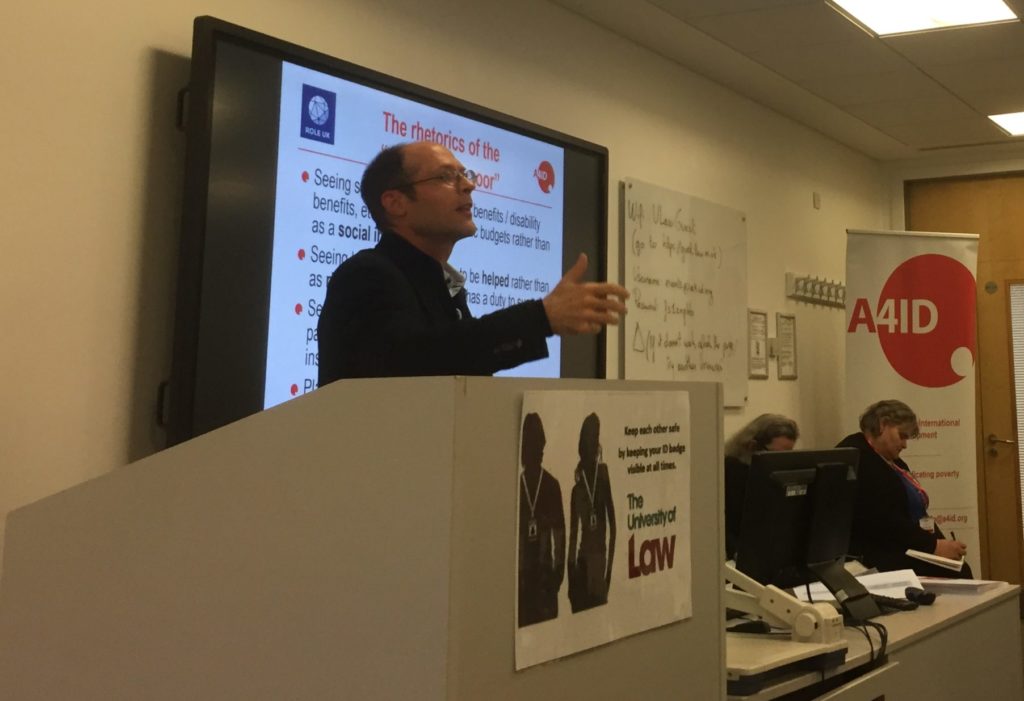Human Rights Lessons from Britain and India

On 1 May 2020, Prof. Olivier De Schutter will replace Philip Alston as the United Nations Special Rapporteur on Extreme Poverty and Human Rights. This past January, De Schutter (second from left above) and three ATD Fourth World UK activists co-taught a session in the law and development training programme organised by the Advocates for International Development: Lawyers Eradicating Poverty, at the University of Law in London.
De Schutter, a long-term ally of ATD Fourth World in his native Belgium, felt it was important that the training session begin with the activists speaking from their lived experience of poverty. Seamus Neville, Patricia Bailey and Amanda Button described their work over the past decade on three different projects:
- The Roles We Play: Recognising the Contributions of People in Poverty;
- participatory research on Understanding Poverty in All Its Forms;
- and campaigning for a socio-economic duty with Poverty2Solutions.
De Schutter then explained that poverty in the UK prevents citizens from accessing their legal rights. For example, a person might hesitate to ask for support from a social worker because they don’t want to risk either feeling humiliated or having children placed in care. He also cited lack of digital literacy and social isolation as obstacles to claiming legal rights.
There are a number of lessons from promising jurisprudence abroad, De Schutter suggested. In India, citing the right to access food, Rajasthani activists and human rights lawyers won a landmark case in 2001 that led to subsidised grain prices. Close monitoring ensured that the benefits reached the 800 million Indians living below the poverty line, particularly exceptionally poor citizens like the indigenous Tiwa community.
ATD Fourth World congratulates De Schutter on his new appointment.




